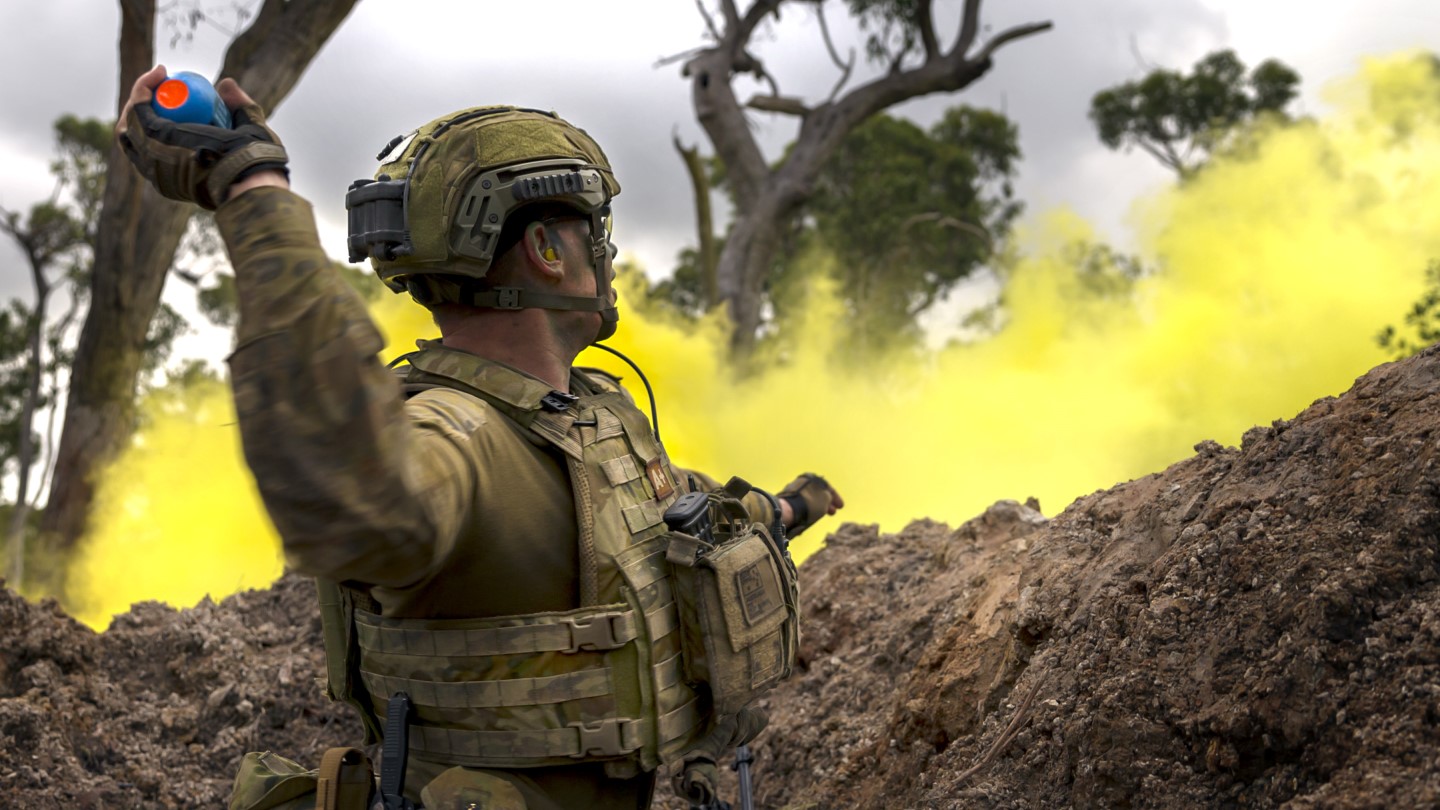Formidable Info About What Does It Mean When A Grenade Is Hissing

Uh Oh, Is That a Hiss I Hear? What It Means When a Grenade is Hissing
1. The Sound of Impending Boom? Decoding the Hiss
Okay, so you're in a hypothetical (hopefully!) situation. Maybe you're watching an action movie, or perhaps you stumbled upon something that looks suspiciously like a grenade. And it's hissing. What now? Is this the end? Well, not necessarily, but it's definitely time to pay attention. That hissing sound is a key indicator of what's going on inside that little metal ball of potential chaos.
The hiss you hear from a grenade isnt the sound of the explosives themselves. Instead, its usually the sound of the fuse burning. Most grenades use a pyrotechnic delay fuse, meaning a chemical reaction is slowly making its way towards the detonator. The hissing noise comes from the gases being released as that chemical reaction progresses. Think of it like a really, really short and angry firework fuse.
So, the short answer? A hissing grenade means the fuse is lit, and things are about to get loud — and potentially messy. It's not the time for a picnic, or to try and figure out if it's a real grenade or just a very convincing prop. It's time to act, and act quickly. We'll get to what that action should be shortly, but first, let's understand the mechanism a little better.
Essentially, the hissing is your warning. A loud, rather insistent warning that says, "Hey! Something explosive is about to happen, and you should probably not be here when it does." Consider it nature's way (or rather, human engineering's way) of giving you a fighting chance. Don't ignore it. It's far more important than that phone notification you just got.

Pin Pulled? The Chain of Events
2. From Safe to Not Safe: Understanding the Trigger
Before we delve deeper, let's quickly recap how a grenade is typically activated. First, the safety pin is pulled. This pin keeps the striker lever in place. When the pin is removed, the only thing holding the striker lever down is your grip. Once you release the lever, the striker snaps down, igniting the primer. The primer then sets off the delay fuse, which is what you hear hissing.
That hissing sound is typically associated with a delay of around 3 to 7 seconds, depending on the type of grenade. It's a countdown. A short countdown. And that's why understanding the hissing sound is so crucial. It gives you a tiny window to react. Imagine it like this: you're playing a high-stakes game of hot potato, only the potato is about to explode. Not ideal, right?
The key takeaway here is that the hissing only starts after the pin is pulled and the lever is released. A grenade sitting innocently on the ground isn't going to spontaneously start hissing. Unless, of course, someone has tampered with it, in which case, run faster! Understanding this sequence is important for differentiating a safe situation from a very, very unsafe one.
Think of the pin as the 'off' switch, and the lever release as the 'on' switch. Once that lever is released, the clock starts ticking and hissing. It's a bit like a self-destruct sequence in a sci-fi movie, only far less glamorous and significantly more dangerous for anyone standing nearby. So, if you hear the hiss, don't stand nearby!

How Does A Grenade Work? YouTube
What To Do? (Besides Panicking, Ideally)
3. Action Plan
Okay, deep breaths. You've identified a hissing grenade. Panic is natural, but useless. Let's talk about what you can actually do. The best course of action depends largely on the situation, but here are some general guidelines. First, and most importantly, GET AWAY! Distance is your friend here. The farther you are from the blast, the better your chances of survival.
If possible, seek cover. A sturdy wall, a ditch, anything that can offer some protection from the blast and shrapnel. Think about it like this: you're trying to shield yourself from a tiny, angry sun. Find something that can block some of that energy. Lying flat on the ground can also help minimize your exposure to shrapnel. Keep your head down and cover your ears.
Here's a slightly more advanced move, but only if you have the presence of mind and opportunity: if it's safe to do so, try to identify where the grenade is and warn others. Shouting "Grenade!" might sound clich, but it could save lives. Of course, don't put yourself at undue risk to do this. Your own safety is paramount. A quick shout and then dive for cover is the best approach.
And finally, let's address the Hollywood myth of throwing the grenade back. Unless you are a highly trained professional with extensive experience handling explosives, do not try to throw the grenade back. You're far more likely to fumble it, trip, or otherwise make the situation even worse. Just focus on getting yourself to safety. Leave the heroics to the action stars.
Different Grenades, Different Hisses?
4. Not All Explosions Are Created Equal
While the basic principle of a hissing fuse remains the same, it's worth noting that different types of grenades might have slightly different sounds or delay times. For example, some flashbang grenades might have a quicker fuse than a fragmentation grenade. The point is, any hissing sound coming from a grenade-like object should be treated with extreme caution.
There are also grenades that don't rely on a pyrotechnic fuse at all. Some use electronic timers or other triggering mechanisms. These might not hiss at all, making them even more dangerous because they provide less warning. This is why awareness and caution are always key. It's always better to err on the side of safety.
Think of it like this: every grenade is a unique snowflake of destruction. While they all share the basic intention of exploding, the specifics of how and when they do so can vary. This is why training and experience are so important for those who handle these devices professionally. But for the rest of us, the takeaway is simple: hissing means danger, regardless of the specific type of grenade.
Ultimately, knowing the nuances of every type of grenade isn't really necessary for the average person. What is necessary is understanding that a hissing sound is a critical warning sign and reacting accordingly. Leave the grenade identification to the experts. You just focus on getting out of harm's way. That's the most important skill to have in this hypothetical scenario.

How To Throw Grenades In Mass Effect Legendary Edition At Eileen Towner
Staying Safe
5. Avoiding Explosive Situations (Ideally)
Of course, the best way to deal with a hissing grenade is to avoid encountering one in the first place. This might seem obvious, but it's worth stating. Be aware of your surroundings, especially in potentially dangerous areas. If you see something that looks suspicious, don't touch it. Report it to the authorities immediately.
If you find yourself in a conflict zone, follow the instructions of local authorities and stay informed about potential threats. Avoid areas where explosives are known to be used or stored. Common sense goes a long way in preventing accidents. It's like avoiding dodgy-looking street food; if it looks suspect, don't risk it!
And finally, educate yourself about explosive safety. There are many resources available online and through local organizations that can provide valuable information about identifying and avoiding explosive hazards. Knowledge is power, and in this case, it could potentially save your life. It's like learning basic first aid; you hope you never need it, but it's good to know just in case.
In the end, understanding what a hissing grenade means is a crucial piece of knowledge, however unlikely you are to encounter it. By understanding the danger signs and knowing how to react, you can significantly increase your chances of survival. Remember, awareness, caution, and a healthy respect for explosives are your best defenses. Now, go forth and be safe!

FAQ
6. Your Burning Questions Answered (Hopefully Before They Explode!)
Let's address some common questions that might be swirling around in your head about hissing grenades. We'll try to keep the answers concise and, hopefully, not too terrifying.
7. Q
A: Extremely unlikely. Unless the grenade has been tampered with or is malfunctioning in some way, the hissing only starts after the pin is pulled and the lever is released.
8. Q
A: Yes. Any hissing sound coming from a grenade-like object should be treated as a serious threat. Don't try to investigate further. Get to safety immediately.
9. Q
A: This is generally not recommended. While it might reduce the spread of shrapnel slightly, it's unlikely to contain the explosion completely, and you'd be putting yourself at extreme risk by getting close to the grenade. Distance and cover are your best options.